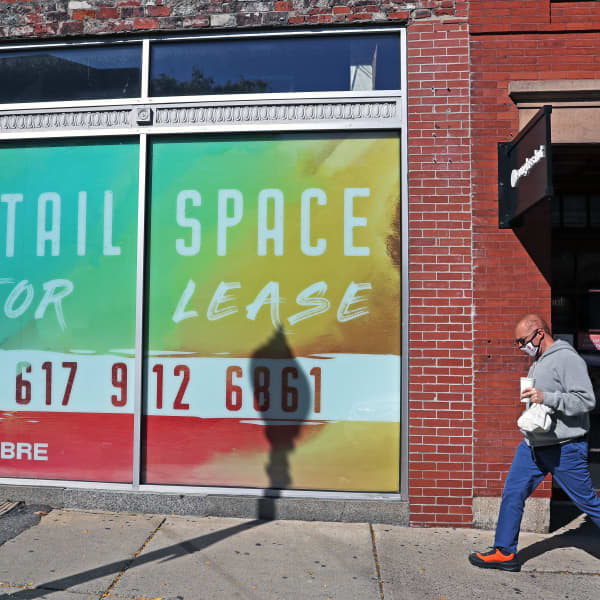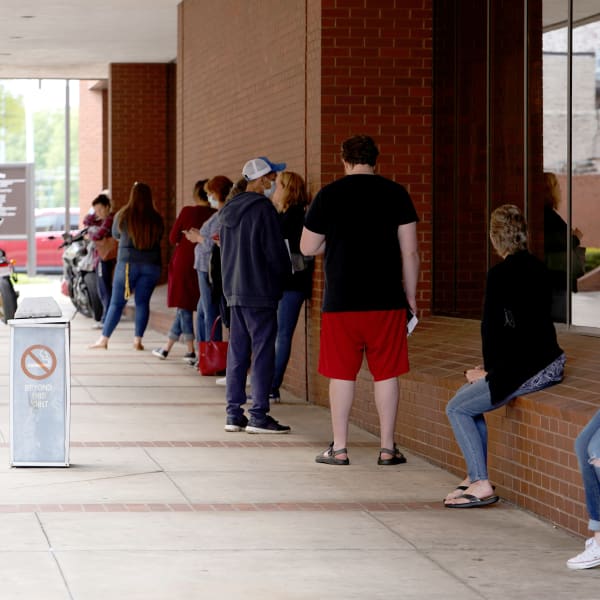Small businesses across the country support the Republican tax reform plan, with 55 percent saying they are in favor of seeing a tax bill passed.
But when it comes to the level of support and enthusiasm, it's not just multinational corporations where size seems to matter. The bigger a small business is, the more likely it is to support the tax changes being promoted by President Donald Trump and GOP leaders in Congress, and the more likely the business is to expect immediate benefits, according to the fourth-quarter CNBC/SurveyMonkey Small Business Survey, conducted with more than 2,000 small-business owners across the United States between Nov. 20 and Dec. 4, using the SurveyMonkey's online polling methodology.
"Far from perfect," said Jason Duff, a real estate entrepreneur based in Bellefontaine, Ohio (population under 20,000), echoing Sen. John McCain's comment when he voted in favor of the Senate plan. "I'm still very much wanting to see it pass, but I do think it may benefit the investor or corporation more than the true small business," Duff said.
More than half of the biggest small businesses expect to pay less in 2018 taxes
Based on what you know about the tax reform bill, what do you expect to happen in 2018?
| 2018 tax rate expectations | All business owners | 0-4 employees | 5-9 employees | 10-49 employees | 50 or more employees |
|---|---|---|---|---|---|
| My business will pay more | 31% | 33% | 25% | 31% | 22% |
| My business will pay less | 33% | 30% | 31% | 41% | 51% |
| My business will pay about the same | 33% | 34% | 42% | 24% | 25% |
Source: CNBC | SurveyMonkey Small Business Survey, Q4 2017
The Senate plan incorporated more generous treatment for pass-through business income than the House plan did, with an effort led by Wisconsin Sen. Ron Johnson ultimately pushing up the percentage of business income to more than 23 percent that can be shielded by an owner.
Raymond Haller, tax partner at Grassi & Co., had said of the House plan, "It does not really help the small-business owner who is actively running his company. This tax reform bill is for the ultra-wealthy." Haller was much more positive on the Senate plan: "It levels the playing field whether you're an investor or a true owner." He added, "November 2018 is right around the corner, and taxpayers will remember if the current administration helped them or hurt them, and business owners can have powerful voices."
A vast gap exists between Main Street's biggest and smallest on 2018 tax impact
In the next 12 months, do you expect changes in tax policy to have a negative effect, no effect, or a positive effect on your business?
| Effect on business | All business owners | 0-4 employees | 5-9 employees | 10-49 employees | 50 or more employees |
|---|---|---|---|---|---|
| Negative effect | 36% | 37% | 37% | 35% | 26% |
| No effect | 25% | 26% | 24% | 23% | 15% |
| Positive effect | 38% | 35% | 38% | 40% | 58% |
Source: CNBC | SurveyMonkey Small Business Survey, Q4 2017
Outside estimates of pass-through business income have shown that it is a small number of large businesses that account for the majority of pass-through profits and economic activity, rather than true mom-and-pops. An overwhelming share of pass-through income is earned by those at the very top of the income scale — 70 percent of partnership income accrues to the top 1 percent.
What's more, while 95 percent of small businesses are organized as pass-throughs (based on 2014 Treasury Dept. data) rather than traditional C-corporations, the CNBC/SurveyMonkey Small Business Survey found the most support (68 percent) for the tax plan among C-corps — which would receive the flat corporate tax-rate reduction to 20 percent. Sole proprietorships, partnerships and S-corporations — all versions of pass-through businesses — show less overall support for the plan.
Small businesses are widely pro-tax reform, but size makes a big difference in level of support
Overall, do you support or oppose passage of the tax reform bill currently working its way through Congress?
| Support level | All business owners | 0-4 employees | 5-9 employees | 10-49 employees | 50 or more employees |
|---|---|---|---|---|---|
| Strongly support | 27% | 25% | 23% | 27% | 49% |
| Somewhat support | 28% | 26% | 33% | 35% | 24% |
| Somewhat oppose | 13% | 13% | 18% | 7% | 11% |
| Strongly oppose | 29% | 33% | 24% | 27% | 15% |
Source: CNBC | SurveyMonkey Small Business Survey, Q4 2017
Karen Kerrigan, president and CEO of the Small Business & Entrepreneurship Council, a lobby group, said the tax reform plan will drive economic growth and therefore higher revenue-growth potential for small businesses.
But Grassi's Haller is less sure the growth will be equally divided. He said for mature businesses "just chugging along," the tax plan won't be as significant as it is to investors and new enterprises that have the funds to commit to a lot of capital expenditures. "It's a good thing to get new businesses, but for mature mom-and-pops, I don't see it being any more stimulative than what is now in the economy. ... Companies that commit to large capital expenditures will benefit the most," he said.
The CNBC/SurveyMonkey Small Business Survey found that when asked what they were most likely to do with extra money received from a tax cut next year, the No. 1 response from small-business owners was "pay down debt," chosen by 31 percent of respondents. Among the smallest firms, of 0–4 employees, 37 percent said they would use a tax-cut refund to pay down debt.
The survey also found that the economic outlook of small-business owners across the United States has not become more bullish, even as the prospects for tax reform improved during the survey period.
Kristie Arslan, founder and CEO of Popped! Republic, an Alexandria, Virginia-based gourmet popcorn company, said it's "profoundly unfair" and "a bias towards big business" that corporate tax reductions are permanent while all the other tax cuts are scheduled to expire in less than a decade. But she is happy that at least for now the plan would put pass-through businesses on a level playing field with corporations. "Are these bills ideal? No. But it is a start to simplify the tax code and help us keep more of our money," she said.
Smaller small businesses worry more about taxes
What is the most critical issue currently facing your business?
| Issue | All business owners | 0-4 employees | 5-9 employees | 10-49 employees | 50 or more |
|---|---|---|---|---|---|
| Taxes | 26% | 28% | 26% | 20% | 18% |
| Cost of employee health insurance | 16% | 13% | 18% | 26% | 23% |
| Customer demand | 13% | 16% | 10% | 6% | 14% |
Source: CNBC | SurveyMonkey Small Business Survey, Q4 2017
Simplification of the tax code is one aspect of tax reform that most small-business owners seem to agree does benefit all entrepreneurs, and the CNBC/SurveyMonkey data shows that it's the smallest businesses that cite taxes most frequently as a critical issue.
"In terms of actual tax-code adjustments, there will be arm-wrestling and adjustments, but for me, cutting to the chase, the big thing is simplification for my small-business members and small business in general," said Keith Hall, president and CEO of the National Association of Self-Employed. He said any tax reform making it more simple to do taxes is more important than the exact percentage of the tax reduction. "Just don't make it take four weeks of our life to comply with the tax code," Hall said.
The CNBC/SurveyMonkey Small Business Survey for the fourth quarter 2017 was conducted online from Nov. 20–Dec. 4, 2017, among a national sample of 2,043 self-identified small-business owners ages 18 and up, using the SurveyMonkey survey methodology.





